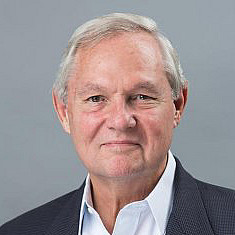History
History majors reflect on Hutching’s lecture
Open gallery

In late November, Dr. Robert Hutchings, Walt and Elspeth Rostow Chair in National Security and professor of public affairs at the Lyndon B. Johnson School of Public Affairs at the University of Texas, gave a lecture at Southwestern University. He served as a special advisor to the secretary of state with the rank of ambassador and as chair of the U.S. National Intelligence Council. Drawing from this experience and from his archival research with recently declassified documents, he examined the role of American diplomacy in the East European revolutions of 1989, the unification of Germany, and the collapse of the USSR at the end of the cold war. Students filled the atrium at Mood-Bridwell Hall and learned about the intersections between politics and history. Two of our majors reflect on the lessons learned from Dr. Hutching’s lecture.
Jax Luera
I have to admit I was initially disappointed when I heard the talk was going to cover political aspects of the Cold War. Modern, political, and American history is about the farthest you can get from my historical interests. I was thus pleasantly surprised by our guest speaker and the insight he provided. At the beginning of the semester, we spent some time in Historiography speaking about cycles of history. We debated about whether history repeats itself, whether we can predict future events based on human knowledge, and whether human nature restricts history. This talk felt like a challenge to the idea that history is bounded by anything.
Ambassador Hutchings spent his entire presentation speaking about the fragility of events—about one person, one conversation, one small detail could have changed the course of history. He specifically cited seven examples of when, dependent on one conversation, the trajectory of political relationships hung in the balance, and regardless of all the knowledge of the past or historical events, no one knew what would happen until it did. He reinforced this point time and time again. Those involved in the foreign affairs predicted one thing to happen, there was an apex where events could unfold in multiple different ways, and then there is what actually happened. The point of his presentation is that it is easy to look back on these events and assume that there was only one path for history. We have this problem when we study any type of history. When we look at events unfolding across time, seeing how one decision affects the next, we create a fantasy world in which only one history happened. However, we need to remember that we are living history in real time, that every one of our decisions not only affects the next, but also is a choice in itself. We tend to forget that what our actions are now, will be historical as soon as we are finished. People will look back on what we (well, some of us) have done, and wonder if there were any other paths, options or decisions we could have taken. And the answer is a perpetual yes. We all make these choices. This also reinforced the idea that history needs to be studied from all sides. When we only look from the perspective of one country or one diplomat, we only see one side of the story. When we do this, it’s easy to believe that there were no other pathways. Yet when we see the hidden works of others, we can see just how delicate and fragile these historical threads actually are.
Jake Stagner
Last Thursday, November 8, I attended a lecture given by Robert Hutchings, an accomplished diplomat who served on the Nation Security Council as an expert on Eastern European affairs during the end of the Cold War. His lecture focused on “inflection points” or contemporary events that shaped the way the United States tailored lead its policy toward the Soviet Union and states under its influence. For example, one of the key inflection points was the fall of the Berlin Wall, which “took everyone by surprise.” The fall of the Berlin Wall made diplomats on both sides realize that more things than ever before could be discussed, such as talks about German Unification. These inflection points were extremely important parts of the Cold War and Robert Hutchings stressed that at the time, the highest advisors to the National Security Council largely did not know exactly what to do.
In this sense, Ambassador Hutchings offered a compelling argument against teleology. When writing about the past, even the recent past, historians often fail to understand that the future was very much in flux. The actions and consequences that took place during a period of time were not predetermined and could have changed drastically if one action in the past was different. Despite this, historians still write as if the Soviet Union was destined to fall in the exact manner that it fell.
I noticed that his lecture focused heavily on high politics. Reflecting the perspective of someone who was inside the federal government, the tight timeline offered only a narrow notion of the history and did not include the way ordinary people experienced the extraordinary events of the era. The lecture did not examine the way ordinary people experienced the extraordinary events.
Overall, this lecture was a fun and enjoyable experience as well as deep dive into the duties and skills of a diplomat serving the National Security Council.















